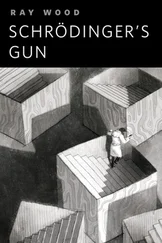Sitara was ensconced in an isolation suite of the National Institute of Health Special Clinical Studies Unit in the city of Bethesda, Maryland. An outsider, upon seeing all the locked doors and other security precautions, might think that she was a prisoner, but Sitara had been locked away willingly. She knew her immunity could be the key to creating a vaccine.
She sat up in her bed and looked through the glass pane of the entrance door, anticipating the arrival of two specially trained nurses who would want to take more of her blood. Unlike a regular hospital, it wasn’t just a case of arriving at the patient’s bedside, drawing the required amount of blood, and then sending it to a lab for analysis. The safety procedures were very strict and rigorously applied, and this particular part of the hospital was on lockdown; nobody could leave. Those still there were volunteers who had stayed behind to help the struggle to find a vaccine, but nobody judged those who had decided not to remain; people had families and loved ones they wished to care for, to protect, and to die alongside.
Sure enough, a couple of minutes later, Suzy Wong and Ian Petrocelli let themselves into the ante-room, which separated the main corridor from the isolation room. The ante-room was maintained at a lower pressure than that of the corridor, to prevent air from leaving and contaminating the rest of the establishment. The isolation room was similarly protected, resulting in two levels of security. At first Sitara had been concerned that the external air could contaminate the internal air of her room, but when the two-level negative pressure safety precautions were explained to her, and she was assured that the air in both her room and the ante-room was changed every three minutes, her mind was put at ease.
She watched as both nurses sanitized their hands before Ian commenced the ritual of donning protective clothing. [8] this is probably unnecessary technical detail. Same with PAPR. Instead of naming/labeing them,just say what the are.
He and Suzy were fastidious in adhering to the safety procedures, donning the slash-suit in the prescribed fashion, checking seals and the correct functioning of the air purifier. The last part of the process looked really funny. She grinned as Ian, now clad head to toe in his protective gear, performed a range of motion-fit tests to ensure that he could perform his duties unhindered by the suit. The fact that Sitara couldn’t hear anything from the ante-room only added to the absurdity of seeing a so strangely garbed man bowing and doing squats, like the Karate Kid warming up before a fight.
As it was the second day of Ramadan, Sitara’s breakfast, her sehri , had been brought to her just before dawn. If her room had had a window, she could have watched the pink blush of the sunrise as the sun began to force darkness into retreat, and she said her prayer of Fajr , but a window would have compromised the integrity of the room so she just had to trust the clock on the wall and her intuition. She would also say the prayer of Maghrib at sunset, despite not having fasted during the day. These were unusual times and some flexibility was to be expected. But she didn’t feel any guilt at her inability to follow the rituals correctly; things were what things were – circumstances were beyond her control. She normally only prayed in the mornings anyway, but during this sacred period, she did like to increase her prayers to the prescribed five a day.
She was a modern Muslim woman, unlike her mother who was more traditional but who – to her credit – didn’t chastise her daughter for her approach to her religion. She may not have fully approved, but she recognized that the world was changing and that Sitara’s life was her own and accepted her choices. Sitara loved her mother all the more for that. She didn’t lie to her mother about her personal brand of Islam, but she did omit certain details. Her parents had no need to know that she had boyfriends, sometimes drank alcohol and even smoked the occasional joint. She had nothing better to do right now anyway. She didn’t ask for forgiveness and a better life in her prayers, but rather used them as a vehicle for gratitude and love, well aware that she was living a good life of good quality and therefore Allah deserved thanks for his blessings.
She ate her breakfast quickly, not wanting to miss the fasting deadline, even though that was a part of the ritual that she couldn’t participate in this year as the taking of blood samples invalidated the fast. She didn’t bother with the short prayer of opening iftar – there didn’t seem much point if she were unable to fast – and then let [9] is this happening as the nurses are coming in? The rest of the paragraph is not, so this is jarring.
the nurses perform their duties. [10] “then free”? Feels awkward. I think you just need to change the wording here.
It took hardly any time at all to draw the blood sample, unlike donning and doffing the safety equipment. Sometimes her nurses would stop by during the day for a chat, but this was always via the intercom. She wondered how much longer she would be cooped up inside the unit.
Her breakfast would be brought to her before dawn for the next thirty days – if she were there that long – and her daily routine of saying her prayers, giving blood samples, and watching movies wouldn’t change. The nurses were friendly enough, and she knew that she was doing something for the greater good, but it didn’t stop her from sometimes wishing that she could unlock the door and go outside for a walk, just for a while, to remind her what the outside world looked and felt like.
7 May – infected and dead too many to count
Sitara had awoken at 5am on her fourth day of isolation, the third day of Ramadan, and awaited her breakfast. She accidently dropped back off to sleep, something she didn’t realise until she suddenly woke with a start.
She looked at the clock on the wall and was shocked to see that it was nearly 6:30 am. The nurses should have brought her breakfast over an hour ago. Her rumbling stomach reminded her that her breakfast was overdue, but she was secretly grateful that she was unable to fast. At least when her food did arrive, she could eat it with a clear conscience. She hoped that she could survive the day on no food. She went to turn on the TV, but changed her mind and decided to take a shower to freshen up instead.
After her shower, she sat up on the bed wrapped in the bath-towel. She was not only becoming anxious for something to eat, but also the fresh clean clothes that come with the food. What was keeping the nurses? She went over to the entrance door and looked through the glass, hoping to see them donning their protective garments. She tried to open the door, but it was a pointless exercise; only hospital staff could open those doors. She tightened her towel’s grip on her body and pressed her face against the glass pane, straining to get a better look around the interior of the ante-room. Everything looked normal and in its place. Suzy and Ian hadn’t even entered the room yet. She told herself again that they were just late, they would come soon.
Another hour passed. Now Sitara was becoming really worried. This definitely wasn’t normal. What if nobody was coming? She would be trapped. She tried to open the ante-room door again. No, don’t try the entrance door. That was foolish. Try the exit door; that opened outwards. That was locked too. The doors had to be locked, not so much to keep Sitara in, but to keep unprotected people out. Anxiety was in danger of giving way to panic. She told herself to calm down and think rationally. First task – accept that nobody was coming. She was on her own. Second task – find a way out of the room.
Читать дальше












